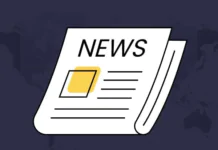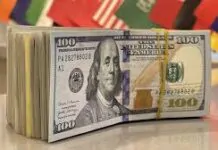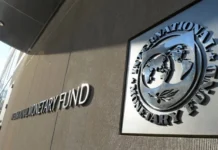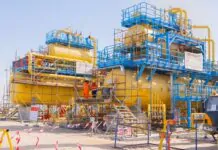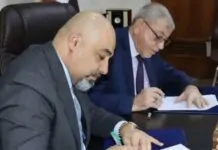Central Bank Of Iraq: The Project To Remove Zeros From The Dinar Is Still Ongoing And Is Being Planned.
Local The Governor of the Central Bank of Iraq, Ali Al-Alaq,confirmed that the third budget”included very large expenditures and a high deficit,” noting that the issue of removing zeros from the dinar may witness developments in the coming period.
On the sidelines of Al-Alaq’s participation in theDuhok Conference on Economic and Financial Problems in Iraq and the Kurdistan Region, Al-Alaq said, “The budget for the three years included very large expenditures, and therefore the deficit was high.
However, there is ongoing coordination between the Central Bank and the Ministry of Finance to achieve a high degree of financial stability.”
He added, “The issue of removing zeros from the Iraqi currency is a project that is still ongoing and being planned, and we may hear developments regarding it in the coming period.”
He pointed out that,”With the renewed proposal for the zero-removal project, which is currently being prepared, the currency denominations will be restructured in general, including the 20,000 denomination.”
https://economy-news.net/content.php?id=61468
What did the IMF report say about the economic situation in Iraq?
Economy | 10/22/2025 Mawazine News – Follow-up:
The International Monetary Fund (IMF) revealed, on Wednesday, its expectations for economic growth in Iraq to increase and inflation to decrease.
The IMF stated in a report followed by Mawazine News, “After reviewing the latest report on the World Economic Outlook, the Fund expected economic growth in Iraq to increase, and inflation to decrease.”
The report’s data came as follows:
Gross Domestic Product (GDP) Growth:
Iraq’s real GDP is expected to grow by 0.5% this year, after it was expected in April to record a contraction of 0.2%. In 2026, growth is expected to rise to 3.6%, after previous estimates indicated growth of only 1.4%.
Inflation:
Inflation estimates for 2025 were lowered from 2.5% to 1.5%, and those for 2026 were lowered from 2.7% to 2.5%.
These revisions reflect increased optimism about the recovery of the Iraqi economy and price stability compared to previous estimates. https://www.mawazin.net/Details.aspx?jimare=268915
Does Public Debt Pose A Real Threat To The National Economy? An Economist Explains
Economy | 10:07 – 10/22/2025 Mawazine News – Baghdad Economic expert, Munir Al-Obaidi, clarified the extent of the danger of internal and external debt to the Iraqi economy, indicating that the danger of the internal debt does not lie in its absolute value, but rather in its ratio to the gross domestic product. This is according to data from the Central Agency for Statistics.
Al-Obaidi said in a post reviewed by Mawazine News that “during the past few days, which witnessed widespread media coverage of the internal debt and its amount, this raised legitimate questions about whether this debt poses an actual danger to the national economy, and what is the nature of this danger, if any.
In order to understand the picture accurately, the issue must be analyzed from several interconnected angles, the first of which is the size of the debt relative to the gross domestic product.”
He added, “Iraq’s GDP is around 230 trillion dinars, which makes the ratio of domestic debt to GDP around 39%, which is lower than the critical ratio of 50% set by many countries.
” He pointed out that “the concern here stems from the composition of the GDP itself, as more than 65% of it depends on the oil sector. If oil prices decline, the GDP will shrink, raising the debt-to-GDP ratio even if the debt level remains constant, which exacerbates the risk.”
He continued, “One of the most prominent challenges is the high interest rates on domestic debt instruments.
Recent bonds were issued with an annual interest rate of nearly 10%, a high rate that could burden the general budget with additional expenditures, especially if oil revenues decline. Over time, the government may find itself facing a financing burden that will be difficult to sustain.”
Regarding the deflationary impact on economic activity, Al-Obaidi pointed out that “government bonds represent a tool of deflationary policy. When the state resorts to borrowing from banks at high interest rates, these banks’ appetite for financing productive projects decreases.
This means that the private sector will be negatively affected by the shrinking financing opportunities, limiting its ability to contribute to economic growth.”
From another perspective, the economic expert explained that “the absence of investment investment opportunities for domestic debt is not a problem in and of itself if it is directed towards strategic and service projects that create added value and job opportunities.
However, when used solely to cover the operating deficit, it becomes a burden that hinders the state’s ability to increase its investment spending, thus weakening the growth of the non-oil sectors that the economy needs to achieve diversification.”
He concluded by saying, “Government debt has a significant impact on the banking system, as government debt rose by 116% over the course of a year, reaching 13% of total banking system assets, up from just 6% in 2024.
This rapid expansion poses risks to the soundness and sustainability of the banking system, as it increases its exposure to sovereign risks and limits its flexibility in financing other economic activities. Concerns about domestic debt are not only related to its size, but also to the nature of its use, structure, cost, and impact on the overall economic environment.
Therefore, managing domestic debt requires a comprehensive vision that takes these factors into account before embarking on any new expansion.” https://www.mawazin.net/Details.aspx?jimare=268908
After Weeks Of Rising Prices, Gold Prices In Baghdad Have Fallen
Economy | 10/22/2025 Mawazine News – Baghdad: Foreign and Iraqi gold prices witnessed a noticeable decline in the local markets in the capital, Baghdad.
The prices of Gulf, Turkish and European gold in the wholesale markets on Al-Nahr Street in Baghdad, this morning, recorded a selling price of one Mithqal of 21 karat, reaching 816 thousand dinars, and a purchase price of 812 thousand dinars, after it was 848 thousand dinars yesterday, Tuesday.
The selling price of one Mithqal of 21 karat Iraqi gold was recorded at 786 thousand dinars, and the purchase price reached 782 thousand.
As for gold prices in individual goldsmiths, the selling price of one Mithqal of 21 karat Gulf gold ranged between 815 thousand and 825 thousand, while the selling price of one Mithqal of Iraqi gold ranged between 785 thousand and 795 thousand dinars. https://www.mawazin.net/Details.aspx?jimare=268914
Basra Crude Prices Rise In Line With The Global Oil Price Rally.
economy | 10/22/2025 Mawazine News – Baghdad – Basra Heavy and Basra Medium crude prices rose as global oil prices rose.
Basra Heavy crude prices rose 36 cents, or 0.60%, to $59.98, while Basra Medium crude prices rose 36 cents, or 0.59%, to $61.13.
Oil prices rose on supply risks related to sanctions and hopes for a US-China trade deal, while investors digested news that Washington was seeking to buy quantities of oil to store in its strategic reserves. https://www.mawazin.net/Details.aspx?jimare=268905
The Dollar Continues To Decline With The Closing In Baghdad
Economy | 04:22 – 10/22/2025 Mawazine News – Baghdad – The US dollar exchange rate fell in Baghdad’s markets with the closing of the stock exchange.
The dollar price fell on the Al-Kifah and Al-Harithiya stock exchanges to 141,400 Iraqi dinars for every $100, after it was 141,550 dinars this morning.
Selling prices stabilized in exchange shops in Baghdad’s local markets, with the selling price reaching 142,500 Iraqi dinars for every $100, while the buying price reached 140,500 dinars. https://www.mawazin.net/Details.aspx?jimare=26892
For current and reliable Iraqi news please visit: https://www.bondladyscorner.com
